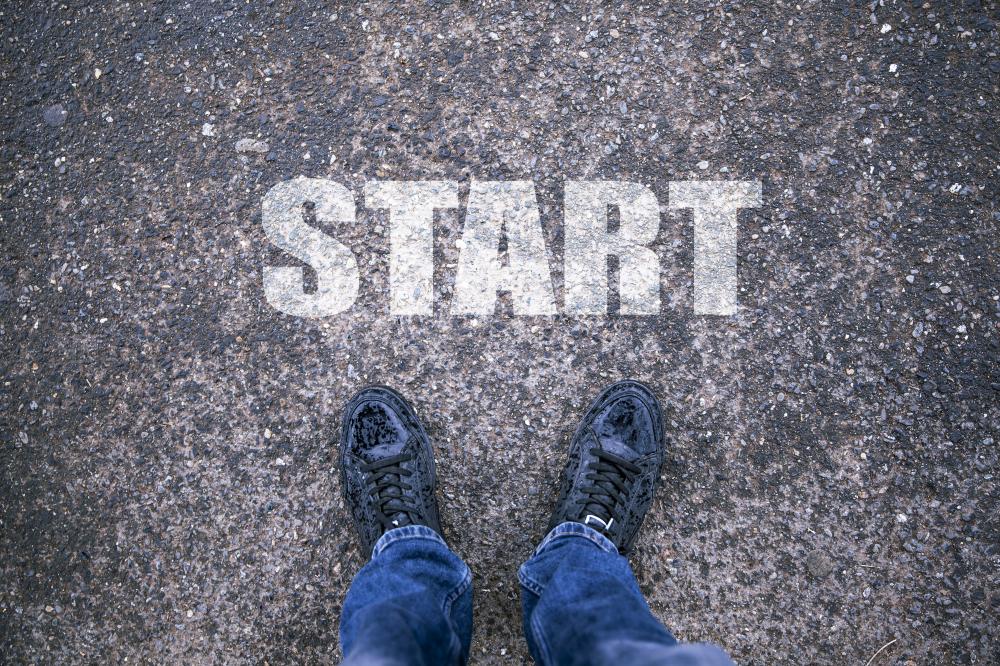Business Plan Development for Success
Starting a drug rehab requires a well-thought-out business plan. A blueprint not only guides your vision but also helps in securing financing. You must begin by defining the target market. Identify whether you aim to serve adolescents, adults, or a particular gender. Consider the type of treatments you’ll offer, such as inpatient, outpatient, or specialized therapies.
Next, establish financial projections. Consider the costs of acquiring a facility, staffing, marketing, and initial supplies. Your financial model should also include revenue forecasts based on your service pricing and expected client load. It’s important to attach realistic numbers, ensuring potential investors or lenders see the viability of your project.
Location Selection
Choosing the right location for your drug rehab facility can make a significant impact on its success. The ideal location should balance accessibility for clients and a peaceful setting conducive to recovery. Proximity to medical facilities is also a plus, offering easy access to emergency care if needed.
Engage with a real estate professional who understands the specific zoning requirements for a healthcare facility. This ensures compliance with local regulations. Additionally, consider the community’s receptiveness to a drug rehab center, as community support can be invaluable in fostering a supportive environment for your clients.
Licensing and Accreditation
Acquiring the necessary licenses and accreditations is a critical step in starting a drug rehab. Each state has unique requirements, often involving inspections and documentation to ensure your facility meets specific standards. Bear in mind that this process can be time-consuming and should be started early in your planning.
Accreditation from organizations such as The Joint Commission or CARF International can enhance your facility’s credibility. These accreditations require maintaining certain quality standards, which not only improve care but also increase your facility’s attractiveness to potential clients and insurers.
Do not underestimate the value of accreditation as it can play a crucial role in differentiating your facility from competitors. Additionally, it offers an opportunity to continuously improve your services through regular evaluations and recommendations from accrediting bodies.
Building Your Team
The success of a drug rehab largely hinges on the quality and dedication of its staff. Consider hiring a diverse team that includes licensed medical professionals, therapists, counselors, and administrative staff. Each member should share a passion for helping individuals overcome addiction.
Invest in ongoing professional development for your team. This not only enhances their skills but also prevents burnout, a common issue in high-stress work environments like drug rehab centers. Arrow Consulting Group can assist in setting up training programs tailored to your team’s needs.
Creating Effective Programs
Developing effective rehabilitation programs is at the heart of how to start a drug rehab. Your programs should be evidence-based, incorporating proven therapies such as Cognitive Behavioral Therapy (CBT), Dialectical Behavior Therapy (DBT), and holistic approaches like yoga or art therapy.
Tailor programs to address various addictions and co-existing mental health disorders. It’s also vital to provide a continuum of care, from detoxification to aftercare support. Regularly evaluate program outcomes and adapt them to meet changing needs and emerging research in addiction treatment.
Include input from former clients in program development. Their experiences can offer valuable insights into what works well and areas requiring improvement, enhancing the overall effectiveness of your treatment offerings.
Marketing Strategy
Creating an effective marketing strategy is crucial for reaching potential clients and differentiating your facility. Employ a mix of online and offline tactics, such as search engine optimization (SEO) optimized websites, social media campaigns, and community outreach programs.
Networking with healthcare providers and local governments can also help establish your facility’s reputation. Encourage satisfied clients to share their experiences as testimonials, providing prospective clients with first-hand accounts of your center’s impact.
Arrow Consulting can help streamline your marketing efforts, employing strategies specific to the behavioral health industry to boost your facility’s visibility and credibility.
Financial Management
Effective financial management is crucial for the sustainability of your drug rehab facility. Establish clear budgeting processes to manage operational costs and maximize profitability. Regular financial audits can help identify areas for cost reduction or resource reallocation.
Seek diverse revenue streams, such as private pay, insurance reimbursements, and grants. Understanding the billing complexities for insurance-covered treatments is essential for maintaining cash flow and ensuring financial stability.
Client and Community Engagement
Fostering strong client relationships and engaging with the community can enhance the impact of your rehab programs. Offer family therapy sessions and support groups to involve loved ones in the recovery process, providing clients with a robust support network.
Engage with the broader community through educational workshops and partnerships with local organizations. This can help demystify addiction, reduce stigma, and position your facility as a trusted resource.
Arrow Consulting guides you in building these relationships, providing strategies for creating a supportive community around your center.
Measuring Success and Adaptation
Establishing success metrics is vital in assessing the efficacy of your rehab programs. Client retention rates, successful completion records, and relapse statistics can offer insights into your services’ strengths and weaknesses.
Regularly seek feedback from clients and staff to identify opportunities for improvement. This feedback loop ensures that your facility evolves, meeting the changing needs of the addiction treatment landscape.
I’m reminded of an Arrow Consulting client who began with a modest center, but through relentless adaptation and improvement, expanded into a reputable multi-site facility.
Continuously adapting your programs based on measured outcomes can transform challenges into opportunities for growth, solidifying your center’s reputation as a leader in addiction treatment.
Is rehab a profitable business?
Running a drug rehab can be a profitable business, but it’s essential to approach it with the right intentions and expertise. Profitability depends on various factors, including location, the quality of care provided, and the business model chosen. Some centers aim for high-end clients, offering luxury amenities and charging premium prices, while others focus on volume by offering affordable, community-based programs.
Arrow Consulting Group specializes in guiding new and established facilities to find the right balance between financial viability and providing high-quality care. With appropriate business planning, financial management, and operational strategies, a rehab can be both a sound investment and a meaningful enterprise. Have you considered what unique value or approach your rehab might offer to stand out in the market?
How much does a drug rehab therapist make?
Compensation for drug rehab therapists can vary widely based on factors such as location, level of experience, and the type of facility. On average, a drug rehab therapist in the United States might earn between $40,000 and $60,000 annually. However, in private or luxury facilities, salaries could be higher.
At Arrow Consulting, we emphasize the importance of investing in qualified and passionate staff. Ensuring competitive compensation and opportunities for professional development can enhance your facility’s reputation and care quality. What strategies might you employ to attract and retain top talent in your rehab facility?
How do drug rehabs make money?
Drug rehabs typically generate revenue through various streams such as patient fees, insurance reimbursements, and sometimes grants. Many facilities offer tiered pricing models, where services range from basic to premium, allowing them to cater to a wide variety of clients. Insurance contracts can also play a crucial role, as they often cover substantial portions of the treatment costs.
Arrow Consulting helps facilities optimize their revenue strategies by analyzing service offerings and reimbursement processes. By ensuring that billing and financial operations are efficient, a rehab center can maintain a steady cash flow. It’s a good idea to periodically review your revenue strategies; what steps are you taking to adapt to changing industry dynamics?
What is the process of drug rehabilitation?
Drug rehabilitation generally involves several key stages, starting with assessment and detoxification, followed by therapy and counseling, and concluding with aftercare planning. The process is highly individualized, focusing on detoxification, counseling, and long-term support to prevent relapse.
Successful programs are often evidence-based, using therapies such as Cognitive Behavioral Therapy (CBT) and group counseling. At Arrow Consulting, we assist facilities in developing comprehensive programs that cater to diverse needs. Have you considered how integrating holistic treatments or alternative therapies might enhance your program offerings?
What are the key challenges in starting a drug rehab facility?
Opening a drug rehab facility involves overcoming several challenges, including securing financing, navigating licensing requirements, and establishing a credible reputation. Each state has specific regulations that must be adhered to, which can be time-consuming and complex.
Arrow Consulting excels at guiding clients through these hurdles with tailored solutions. From business plan development to obtaining necessary licenses and accreditations, we provide the tools and insights needed to succeed. What specific challenges have you faced in your planning phase, and how might expert guidance alleviate these concerns?
How important is community engagement for a drug rehab center?
Community engagement is vital for a drug rehab center’s success. Building strong ties with the local community can foster support networks for clients and reduce stigma associated with addiction treatment. Engaging with community leaders and offering educational workshops can position your facility as a valued resource.
Arrow Consulting specializes in strategies that enhance community relations and client outreach. By participating in local events and forming partnerships with organizations, a rehab can cultivate a positive image and build trust. What innovative community engagement activities could help elevate your facility’s influence and reach?
Resources
- Substance Abuse and Mental Health Services Administration – The Substance Abuse and Mental Health Services Administration (SAMHSA) is the leading agency within the U.S. Department of Health and Human Services dedicated to reducing the impact of substance abuse and mental illness on America’s communities.
- National Institute on Drug Abuse – The National Institute on Drug Abuse (NIDA) is a federal government research institute focused on addressing the science of drug abuse and addiction.
- The Joint Commission – The Joint Commission is an independent, not-for-profit organization that accredits and certifies healthcare organizations and programs in the United States.
- CARF International – CARF International is a nonprofit organization that accredits organizations in the human services field, including drug and alcohol rehabilitation programs.
- U.S. Department of Health & Human Services – The U.S. Department of Health & Human Services (HHS) is the principal agency for protecting the health of all Americans and providing essential human services.



